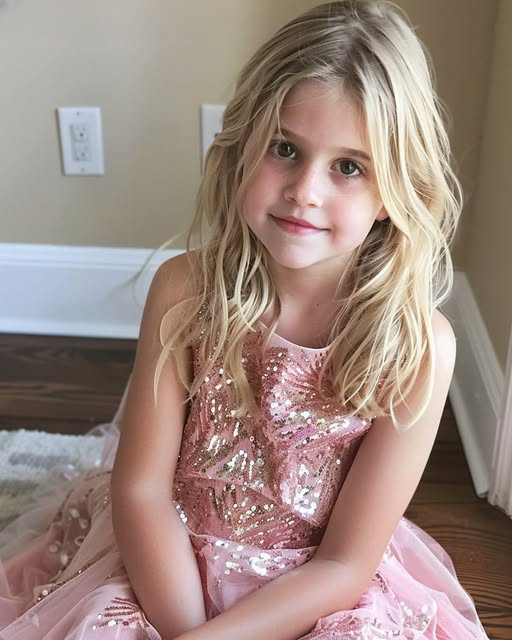I never imagined how much that evening would change our lives when Brian, my husband’s closest friend, came over for a casual family dinner. By the next morning, our daughter had stopped speaking. The silence lingered, and when we uncovered the reasons, we found a painful betrayal that stole her innocence.
It’s still hard for me to fully grasp what happened. Maybe writing it down will help—maybe someone will understand, or at least let me know I’m not losing my mind for feeling this way.
Everything began with that dinner. My husband Tom had invited Brian, his lifelong best friend. The two had been inseparable since middle school—almost like brothers. Brian was more than a friend; he was family.
He was always there when we needed help—fixing things around the house, showing up to barbecues with a grin and a cooler, and sharing in every big and small moment in our lives. Our daughter Emily adored him. Whenever he came by, she’d run to the door, her face glowing as she called, “Brian! Brian!” and then hugged his legs tightly.
He would laugh, scoop her up, and say, “Hey kiddo! How’s my favorite girl?”
That night seemed normal—a relaxed evening with pizza, laughter, and conversation. Tom was running late from work, so I asked Brian to pick up the food on his way. He arrived carrying two pizza boxes in one hand and a small gift bag in the other.
“Look what Uncle Brian brought,” he said, handing the bag to Emily.
Inside was a little stuffed dog, and Emily’s eyes lit up with delight. “Thank you!” she exclaimed, hugging it close. “He’s perfect!”
Brian chuckled, tousling her hair. “I thought you’d like him, kiddo.”
As usual, Brian kept the mood light with jokes during dinner. Emily stuck close, asking him endless questions.
“Why do dogs have tails?”
“To wag when they’re happy,” he said with a smile.
“Why don’t cats have big tails like dogs?”
“Because cats are sneaky—they don’t need them,” he replied, making her giggle.
When dinner ended, I realized we were out of drinks. With Tom still not home, I asked Brian, “Would you mind watching Emily while I run to the store?”
He shrugged, “No problem. We’ll be fine.”
“Thanks, I’ll be back in ten minutes,” I said, grabbing my keys. Leaving Emily with Brian felt completely natural—he was family.
But when I returned, Brian was by the door, looking uneasy and distant. He avoided my eyes, hurriedly putting on his coat.
“Is everything alright?” I asked, worried.
“Yeah, yeah,” he replied quickly. “Something came up. Tell Tom I’ll catch him later.”
Then he left. His sudden exit made me uneasy, but I tried to brush it off. Brian had never given us a reason to doubt him.
The next day, Emily fell silent.
At first, I thought she might just be upset about Brian leaving abruptly. Kids have off days. But my worry grew when she ignored breakfast, even her favorite waffles.
“Emily, sweetie,” I asked gently, “are you upset about something? Did something happen with Brian?”
She just stared at me, her big eyes full of sadness, then shook her head and went back to her room.
Tom tried to talk to her too. “Em, you know you can tell Daddy anything, right?” he said softly.
Emily nodded quietly, clutching the stuffed dog Brian had given her like it was her lifeline.
Days passed, and she stayed withdrawn. She wouldn’t play with toys or visit the park. Her once lively chatter shrank to short answers—“yes,” “no,” “fine.” Watching her retreat broke my heart.
The pediatrician found no physical issues. We tried therapy, but even the counselor couldn’t figure out why she was shutting down.
Weeks turned into months, and Emily remained trapped in silence. Our home felt heavy with sadness.
Then one morning, while buckling Emily into her car seat for school, she finally spoke.
“Will you leave me there forever?” she whispered.
Her words hit me like a blow. “Emily, why would you say that?”
Her lips trembled. “Brian said… I’m not really yours. He said you’ll leave me like my real parents did.”
I froze, heart breaking. Tom and I had planned to tell Emily she was adopted when she was older and ready.
I held back tears and said firmly, “Emily, listen to me. You belong to us. We love you more than anything. Brian was wrong. We will always be here for you. Always.”
Her big eyes searched mine, then she nodded gently. That night, I told Tom everything. He was furious, but our focus was on helping Emily heal.
Brian stopped answering our calls and texts. It was like he disappeared. Then months later, out of the blue, I got a message: “Can we meet? I need to explain.”
Despite Tom’s protests, I agreed. I needed answers.
When we met, Brian looked worn down, like a shadow of himself. “I’m sorry,” he said as we sat down. “I never wanted to hurt you or her.”
Then why, Brian? I asked, my voice shaking with anger and pain. “Why tell her that?”
He took a shaky breath. “That day I found out I was adopted. My parents never told me. It felt like my whole life was a lie. I wasn’t thinking clearly. I thought she needed to know the truth before it was too late.”
“You thought it was your place to tell her? She’s seven! That was our choice, not yours,” I said.
He looked broken. “I know. I’ve been punishing myself every day. I’m not asking for forgiveness. I just want you to understand how sorry I am.”
I left feeling empty. Brian wasn’t evil; he was trapped in his own pain. But what he did broke my daughter’s heart.
Since then, Brian hasn’t reached out. Emily is slowly finding her voice again. Trust, once shattered, takes time to mend—and some wounds may never fully heal.
